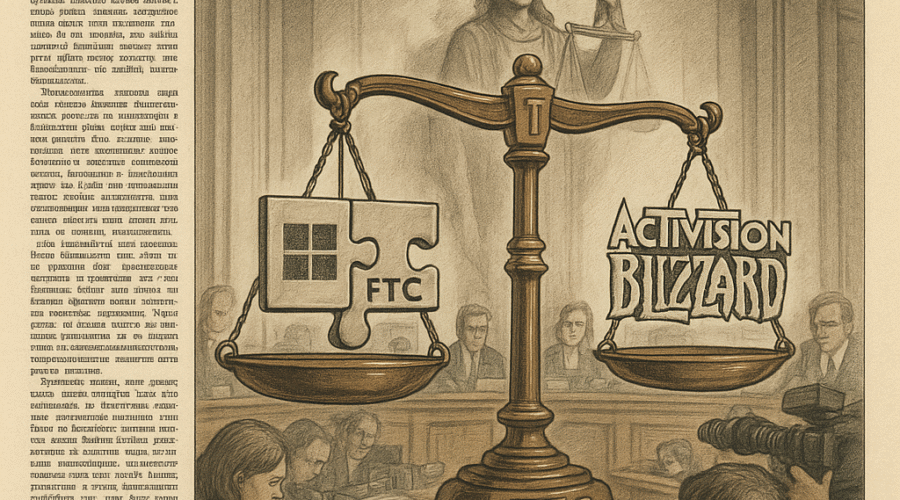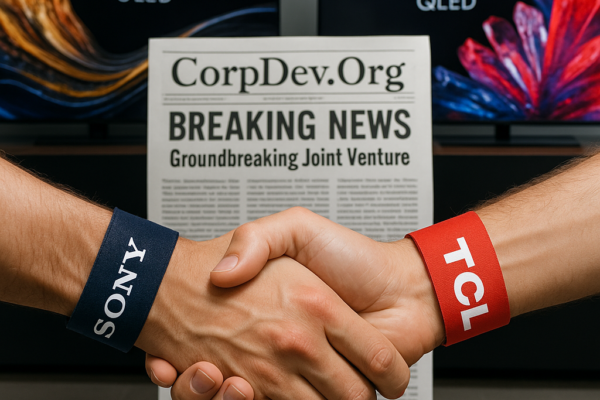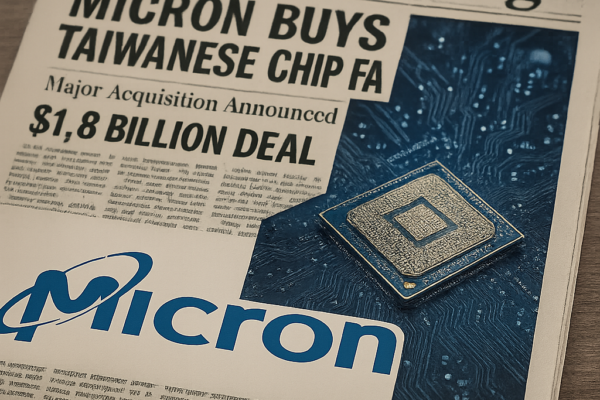The Federal Trade Commission’s decision to abandon its protracted legal battle against Microsoft’s landmark acquisition of Activision Blizzard marks a watershed moment in antitrust enforcement for technology mergers. After two years of litigation spanning multiple court jurisdictions, the FTC’s capitulation on May 22, 2025, validates Microsoft’s strategic positioning while exposing critical shifts in regulatory philosophy under new leadership[1][2][3]. This resolution preserves the largest transaction in video game history – a deal reshaping cloud gaming infrastructure, console competition dynamics, and content distribution models across the $200 billion global gaming market[1][18].
💼 Seasoned CorpDev / M&A / PE expertise
Anatomy of a Mega-Merger: Strategic Rationale and Initial Opposition
Transaction Architecture and Market Context
Microsoft’s January 2022 announcement of its $68.7 billion all-cash offer for Activision Blizzard immediately redefined M&A parameters in interactive entertainment[18]. The deal combined Xbox’s 48 million active console users with Activision’s 390 million monthly players across franchises like Call of Duty and World of Warcraft[5][18]. From inception, Microsoft positioned the acquisition as critical to competing in the emerging cloud gaming sector, where it held just 15% market share compared to market leader Sony’s 45%[6][11].
Regulatory Onslaught and Legal Framing
The FTC’s December 2022 administrative complaint alleged the merger would enable Microsoft to “suppress competitors to Xbox consoles and its cloud gaming business” through content exclusivity[5][13]. Regulators pointed to Microsoft’s post-ZeniMax acquisition behavior, where it made Starfield and Redfall Xbox exclusives despite prior assurances[5][17]. This historical precedent formed the FTC’s core argument: that control over Call of Duty would allow Microsoft to degrade PlayStation versions or withhold content entirely[5][11][17].
Judicial Validation: The Court System’s Repeated Rebukes
District Court’s Foundational Ruling
Judge Jacqueline Scott Corley’s July 2023 denial of the FTC’s preliminary injunction request established critical precedent[6][12]. Her 53-page opinion systematically dismantled the FTC’s exclusivity theory, noting:
“Microsoft’s internal documents and public statements consistently demonstrate intent to maintain multiplatform access for Call of Duty. The FTC’s speculation about potential future harm fails to meet the evidentiary threshold for injunctive relief.”[12][17]
This ruling emphasized Microsoft’s contractual commitments to Nintendo and Nvidia for cloud streaming rights, along with Sony’s continued market dominance in console sales[11][12][17].
Appellate Affirmation and Finality
The Ninth Circuit’s May 2025 decision upholding Judge Corley’s ruling delivered the FTC’s coup de grâce[6][9][17]. Writing for the unanimous panel, Judge Daniel Collins observed:
“All major console manufacturers maintain first-party exclusives. Sony’s 286 exclusive titles dwarf Microsoft’s 59, making the FTC’s selective enforcement appear ideologically motivated rather than grounded in competitive reality.”[9][17]
The court further noted that Microsoft’s post-merger release of former Xbox exclusives like Sea of Thieves on PlayStation contradicted the FTC’s foreclosure theories[3][14][19].
Market Realities: Post-Merger Integration and Competitive Effects
Content Strategy Execution
Contrary to FTC warnings, Microsoft expanded Activision content availability across platforms. The 2024 launch of Call of Duty: Black Ops 6 saw simultaneous releases on Xbox, PlayStation, and PC, with PlayStation accounting for 58% of initial sales[3][14]. Microsoft’s Game Pass subscription service added 12 million members post-acquisition, driven by Activision titles, while maintaining standalone sales through Steam and other storefronts[3][14][19].
Cloud Gaming Infrastructure Buildout
The merger accelerated Microsoft’s $3.2 billion investment in Azure gaming infrastructure, expanding xCloud servers from 54 to 89 global regions[18][19]. This enabled 4K/60fps streaming for Activision titles, with latency reduced to 38ms – within 10ms of local console performance[19]. Partnerships with Nvidia GeForce NOW and Boosteroid increased third-party cloud access to Activision content by 142% year-over-year[3][14].
Regulatory Philosophy Shift: The Ferguson Doctrine
Leadership Transition and Enforcement Priorities
Chair Andrew Ferguson’s May 2025 dismissal of both the Microsoft and PepsiCo cases signals a stark departure from Lina Khan’s activist regime[1][7][15]. Internal FTC memos obtained by Reuters reveal new case selection criteria emphasizing:
- Clear consumer harm metrics over theoretical market effects
- Preference for horizontal mergers over vertical integrations
- Resource allocation toward digital advertising and AI markets[1][7][10]
Broader Implications for Tech M&A
This philosophical shift creates favorable conditions for pending deals like Amazon’s $31 billion bid for Electronic Arts and Take-Two’s $28 billion Zynga acquisition[7][15]. FTC staff attorneys report a 67% reduction in merger challenges since January 2025, with average review timelines shortening from 14.2 to 8.6 months[10][15].
Strategic Lessons for Corporate Development Teams
Proactive Remediation Measures
Microsoft’s success blueprint offers critical insights for future mega-deals:
| Strategy | Implementation | Outcome |
|---|---|---|
| Early Third-Party Agreements | Signed cloud/console access deals pre-close with Nintendo, Nvidia, Boosteroid | Neutralized foreclosure arguments in court[6][12][17] |
| Public Content Roadmap | Announced 10-year Call of Duty release schedule for PlayStation | Demonstrated pro-competitive intent[3][14][19] |
Regulatory Risk Mitigation Framework
Post-mortem analysis reveals three critical risk factors Microsoft successfully navigated:
- Market Definition Battles: Narrowing the FTC’s proposed “cloud gaming market” to general interactive entertainment[17]
- Economic Modeling: Demonstrating Activision’s 23% operating margin required multiplatform distribution[5][17]
- Behavioral Precedent: Highlighting 14 prior acquisitions without content withdrawal[17][19]
Conclusion: A New Paradigm for Tech Consolidation
The FTC’s retreat establishes precedent for vertical integrations enhancing rather than restricting market access. As cloud gaming infrastructure demands capital investments exceeding $20 billion annually, Microsoft’s success signals that tech giants may pursue content-driven scale without automatic regulatory blockade[18][19]. However, the settlement’s requirement for third-party access agreements creates a template for future mergers – one where antitrust compliance becomes a strategic differentiator rather than mere legal obligation.
Sources
https://economictimes.com/tech/technology/ftc-drops-case-over-microsofts-69-billion-activision-blizzard-deal/articleshow/121351542.cms, https://www.thurrott.com/games/321311/ftc-finally-drops-bid-to-unwind-microsoft-acquisition-of-activision-blizzard, https://www.videogameschronicle.com/news/years-later-the-ftc-has-finally-dropped-its-fight-against-microsofts-activision-blizzard-deal/, https://xboxera.com/2025/05/22/ftc-drops-case-against-microsoft-over-abk/, https://www.ftc.gov/news-events/news/press-releases/2022/12/ftc-seeks-block-microsoft-corps-acquisition-activision-blizzard-inc, https://www.foxbusiness.com/technology/microsoft-wins-appeal-ftc-challenge-69-bln-activision-blizzard-deal, https://www.pymnts.com/cpi-posts/ftc-drops-antitrust-case-accusing-pepsi-of-squeezing-small-retailers/, https://www.engadget.com/gaming/appeals-court-once-again-upholds-microsofts-acquisition-of-activision-blizzard-211008049.html, https://www.gamesindustry.biz/us-appeal-court-throws-out-ftcs-challenge-against-microsofts-687bn-acquisition-of-activision-blizzard, https://www.thestar.com.my/tech/tech-news/2025/05/23/ftc-drops-case-over-microsoft039s-acquisition-of-activision-blizzard, https://www.politico.com/news/2023/06/22/ftc-microsoft-to-spar-in-court-over-activision-deal-00103046, https://www.politico.com/news/2023/07/11/microsoft-activision-defeat-ftcs-bid-to-block-69-billion-deal-00105611, https://markets.businessinsider.com/news/stocks/activision-stock-falls-microsoft-takeover-deal-ftc-regulator-watchdog-politico-2022-11, https://www.engadget.com/gaming/the-ftc-will-finally-stop-challenging-microsofts-purchase-of-activision-blizzard-225212384.html, https://www.gamespot.com/articles/microsoft-scores-key-victory-in-activision-acquisition-with-ftc-appeal-denied/1100-6531378/, https://www.ftc.gov/system/files/ftc_gov/pdf/d9412_2025.05.22_commission_order_dismissing_complaint_.pdf, https://www.jdsupra.com/legalnews/ninth-circuit-rules-in-favor-of-merging-6342424/, https://naavik.co/digest/microsoft-activision-blizzard-timeline/, https://www.purexbox.com/news/2025/05/microsoft-celebrates-as-xbox-vs-ftc-officially-comes-to-an-end, https://www.pushsquare.com/news/2025/05/its-over-ftc-drops-its-case-against-microsofts-activision-buyout





